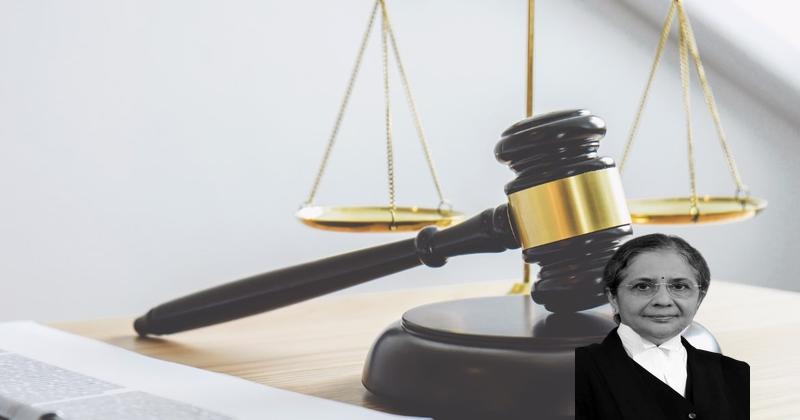Delve into the legal intricacies of a case involving a breach of a peace bond and the court’s authority in upholding peace and security. The court’s analysis sheds light on the procedures and powers granted under the Criminal Procedure Code, emphasizing the importance of following due process in such matters. Stay informed on the legal framework governing breaches of peace bonds and the actions taken by the court to address violations.
Facts
- The appellant breached the terms and conditions of the bond by being involved in a murder case despite executing the bond for good behaviour and peace.
- He was found guilty of breach of bond by the respondent No. 1, who ordered his arrest and custody.
- The respondent No. 1 passed an order under Section 117 read with Section 110(e) Cr.P.C. after notice and opportunity were provided.
- The High Court affirmed the said order, leading to the filing of this appeal contesting both orders.
- The appellant has filed the present appeal against the order passed by the Madras High Court, Madurai Bench on 22.7.2021.
- The High Court confirmed the order of respondent No 1 in MC No 95 of 2021 (A3) dated 13.5.2021.
- The appellant was found guilty of breaching the conditions of bond.
- The punishment was imposed under Section 122(1)(b) of the Code of Criminal Procedure (Cr.P.C.) by the High Court.
- This appeal is a result of the appellant’s dissatisfaction with the judgment and the punishment imposed.
Also Read: Analysis of Financial Statements as Acknowledgment in Limitation Act Case
Arguments
- Learned counsel cited the judgment in Prem Chand vs Union of India (1981) 1 SCC 639, emphasizing the importance of police personnel acting within specified boundaries to avoid putting personal liberty at risk.
- Counsel also referred to the case of Gopalanachari vs State of Kerala 1980 (Supp) SCC 649 to underline the significance of Article 21 of the Constitution of India.
- Appellant’s counsel argued that administrative orders often do not adhere to prescribed procedures or provide adequate opportunities for the affected parties.
- Reference was made to a Madras High Court case, Devi vs Executive Magistrate (Mad HC) 2020 SCC online Mad 2706, where a different view was taken, leading to the direction to place the matter before the Chief Justice for forming a Division Bench.
- Dr. Joseph Aristotle S., representing the respondents, argues that the appellant had eight pending criminal cases, justifying the imposition of a bond of good behavior.
- The imposition of conditions without proper enquiry and opportunity is deemed unjustified, and the appellant should not be held guilty without due process.
- Section 122(1)(b) of the Cr.P.C. allows for passing orders when a bond is violated, which was the case here.
- Chapter VIII of the Cr.P.C. empowers Executive Magistrates to take bonds for peace and good behavior from suspected individuals.
- The appellant’s breach of bond conditions led to the order being rightly passed under Section 122(1)(b) of the Cr.P.C.
Also Read: Landmark Legal Analysis in Conviction Appeal Case
Analysis
- The High Court of Delhi issued guidelines to impart training to officers regarding specific issues
- The case of Aldanish vs State of NCT of Delhi 2018 SCC online Del 12207 was referenced
- The guidelines focus on training officers to handle similar issues effectively
- Appellant found involved in an offence of commission of murder
- Eight criminal cases registered against the appellant from 2012 to January 2021
- The Legislature introduced Chapter VIII of Cr.P.C. to address violations of peace and tranquility
- Appellant heavily relied on directions issued by Delhi and Madras High Courts regarding procedure compliance
- Enquiry conducted by respondent No 1 after show cause notice and response from appellant
- Order passed on 13.5.2021 for violation of bond terms under Section 122(1)(b) Cr.P.C.
- Conclusion reached that appellant is likely to create a breach of peace in the locality
- Chapter VIII of Cr.P.C. grants powers to Executive Magistrates for taking bonds for maintaining security and peace.
- Section 107 allows Executive Magistrates to show cause on violation of peace-maintaining bonds.
- Section 108 empowers Executive Magistrates to secure good behavior bonds for persons spreading seditious materials.
- Sections 109 and 110 of Cr.P.C. give Executive Magistrates the authority to take security from suspected individuals and habitual offenders.
- In the present case, orders were passed under Sections 111 and 117 of Cr.P.C. for security purposes.
- Section 122 of Cr.P.C. specifies the recourse available in case of violation.
- The order passed by respondent No 1 followed the prescribed procedure and provided due opportunity to the appellant.
- The argument presented by the appellant’s counsel is not valid considering the facts of the case.
- The appellant violated the bond executed under Section 110 read with Section 117 Cr.P.C. by getting involved in a subsequent criminal case.
- The bond executed by the appellant has not been disputed, but the subsequent order sending him to custody for violating the bond is being challenged.
Also Read: Analysis of Territorial Jurisdiction in Arbitration Transfer Petition
Decision
- Respondent No. 1 directed the appellant to furnish a bond of Rs. 50,000 without surety under Section 117 Cr.P.C.
- The appellant was ordered to execute the bond for a period of one year from 24.2.2021.
- Failure to comply with the bond conditions may result in imprisonment under Section 122(1)(a) Cr.P.C.
- The High Court affirmed the order of executing the bond.
- The appeal was dismissed as it lacked merit.
- The orders of the High Court and respondent No. 1 were upheld.
- Imprisonment may be imposed for the remaining period under Section 122(1)(b) if conditions are breached.
Case Title: DEVADASSAN Vs. THE SECOND CLASS EXECUTIVE MAGISTRATE/ THE TAHSILDAR (2022 INSC 286)
Case Number: Crl.A. No.-000388-000388 / 2022



